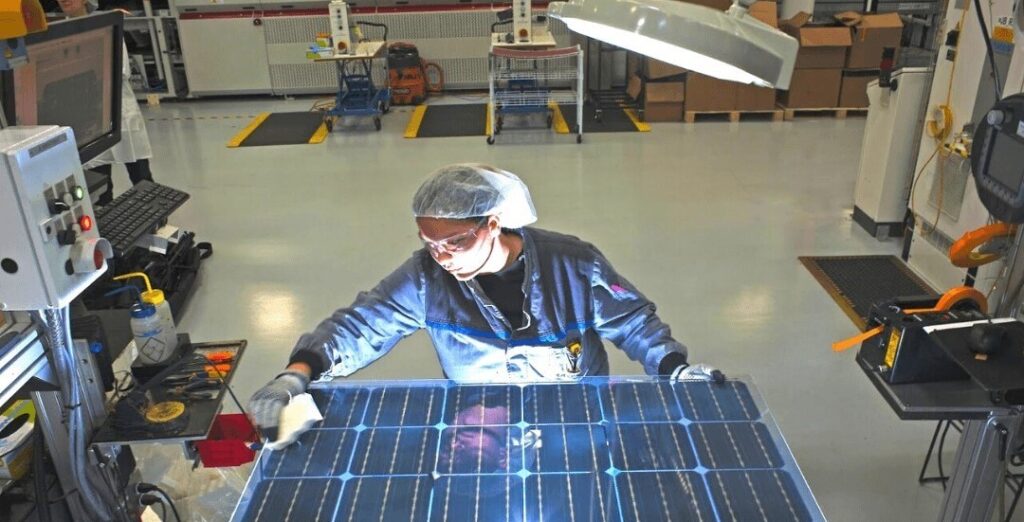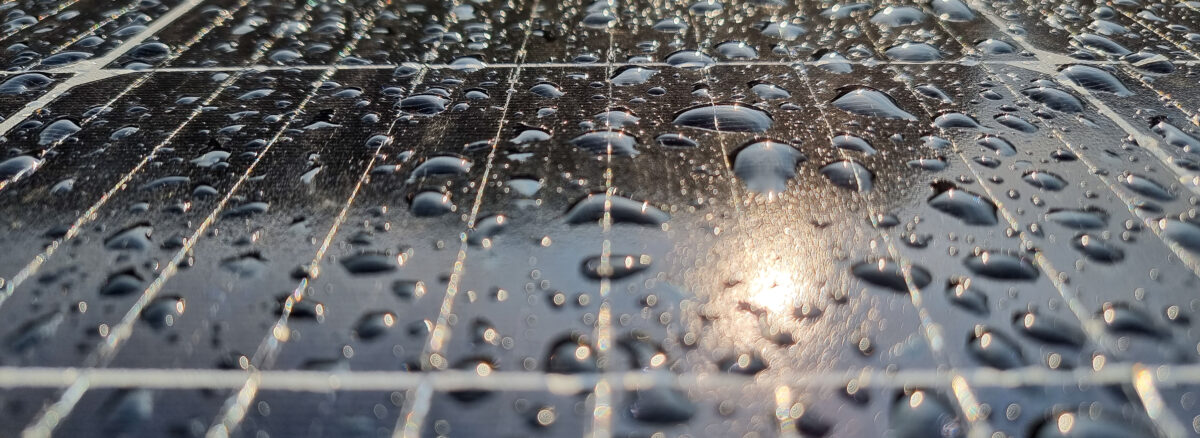- 26 June, 2024
- Francisco Gallego
- Comment: 0
- News

SOLAR PANELS: AN ECO-FRIENDLY JOURNEY FROM INCEPTION TO FAREWEL

In a world increasingly aware of the importance of sustainability, solar energy stands as a key solution to reduce our carbon footprint and promote a greener future. At MEP-Projects, they understand the importance of choosing clean and efficient technologies. That’s why they want to share a detailed analysis of the life cycle of solar panels and their impact on the environment.
The life cycle of solar panels includes five main stages:
- Raw Material Extraction: Involves obtaining minerals such as silicon, aluminum and copper, which can be energy and water intensive, generating greenhouse gas emissions. However, responsible mining practices and the use of recycled materials can mitigate these impacts.
- Production and Manufacturing: Consists of refining silicon and manufacturing solar cells and modules, consuming considerable energy. Modern plants are adopting sustainable practices, such as the use of renewable energies and improvements in energy efficiency.
- Transportation and Installation: Involves moving the panels to the installation sites, generating some emissions, although low compared to the emissions savings over the lifetime of the panels. Installation has minimal environmental impact.
- Operation and Maintenance: For more than 25 years, the panels generate electricity without direct greenhouse gas emissions and require low maintenance, such as cleaning and inspection of electrical components.
- End of Life and Recycling: The panels can be recycled to a large extent, recovering materials such as silicon, glass and metals, reducing the need for new raw materials and the overall environmental impact.
Throughout their life cycle, solar panels generate significantly fewer greenhouse gas emissions compared to conventional energy sources. A study by the Fraunhofer Institute showed that a typical photovoltaic system produces the amount of energy used in its manufacture in a period of one to four years, depending on the location and efficiency of the system.
Additional Benefits
- Emissions Reduction: Each kilowatt-hour (kWh) of electricity generated by a solar panel replaces electricity produced by fossil fuels, thus avoiding the emission of CO2 and other pollutants.
- Resource Savings: Solar energy does not require water for its operation, unlike many conventional power plants.
- Promoting Sustainability: By opting for solar energy, communities and businesses can reduce their dependence on non-renewable energy sources, promoting a more sustainable development.
At MEP-Projects, they are committed to promoting technologies that are not only efficient and cost-effective, but also contribute to the protection of the environment. They take pride in offering solar energy solutions that help their clients reduce their carbon footprint and adopt more sustainable practices.
Life cycle analysis of solar panels demonstrates that while there are environmental impacts at every stage, the long-term benefits far outweigh the costs. Solar energy is not only a viable and effective option for meeting our energy needs, but also a powerful tool for combating climate change and promoting a more sustainable future. At MEP-Projects, they are ready to guide you every step of the way to a cleaner, greener world.
Made by Jessica Valiente (EICA Design Engineer)

